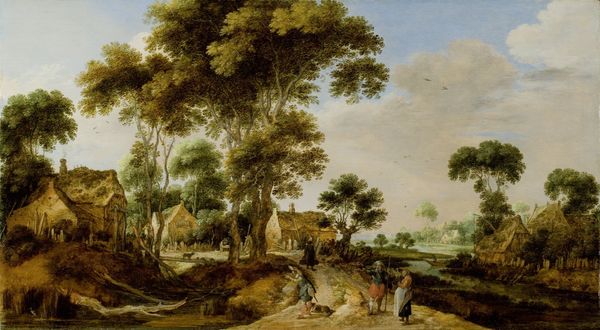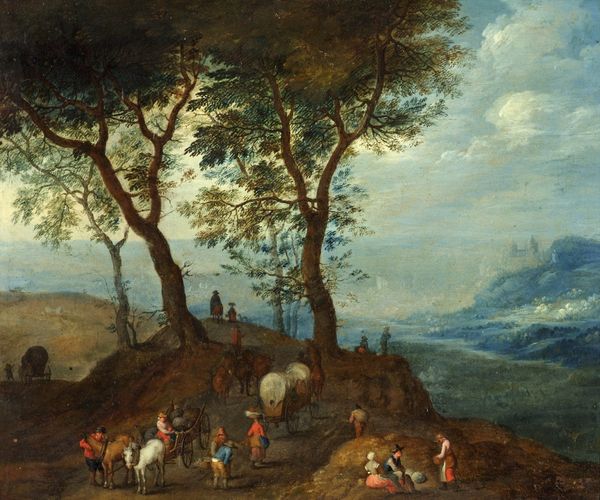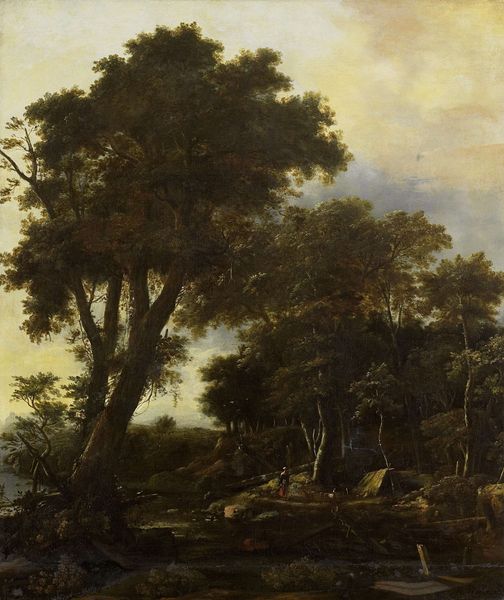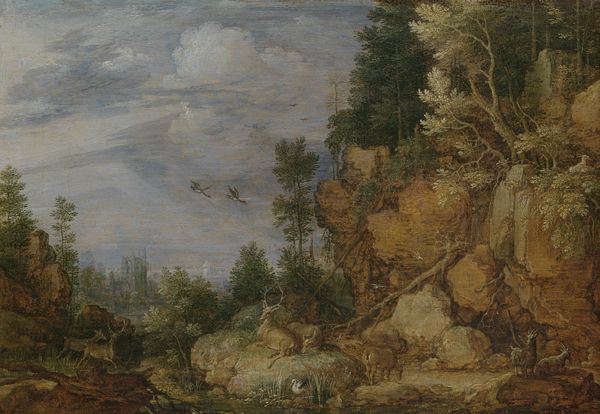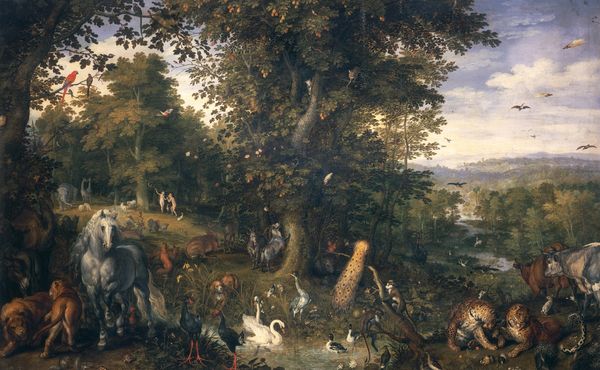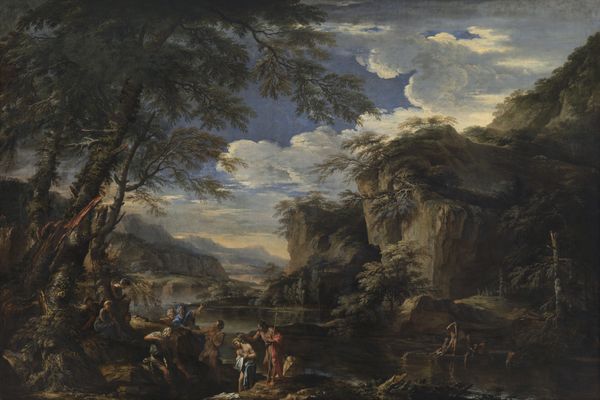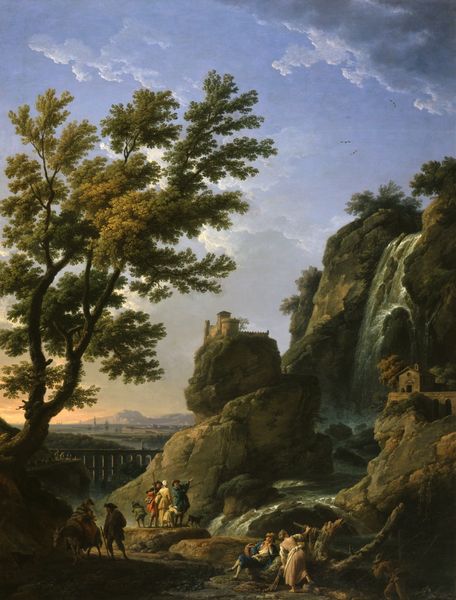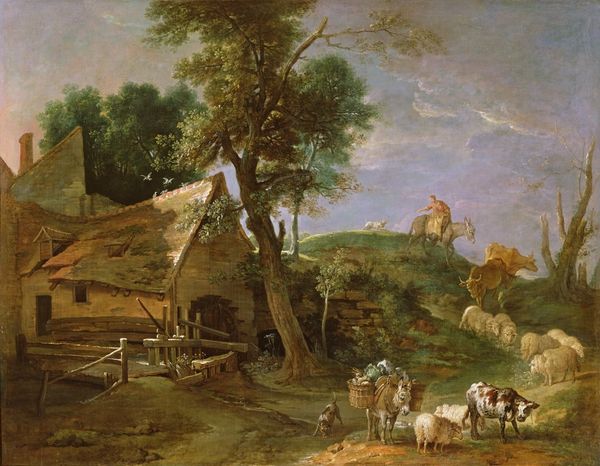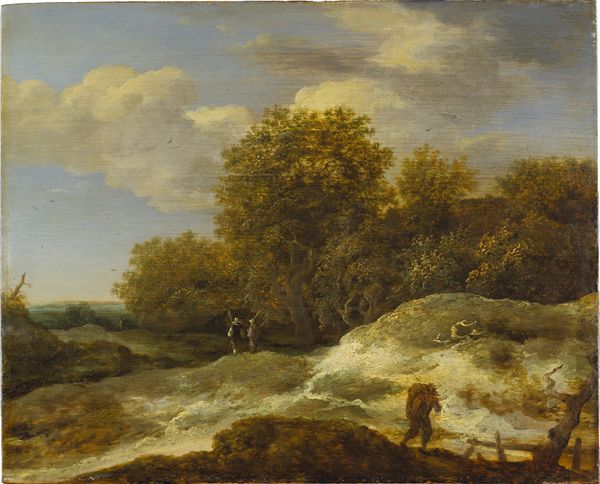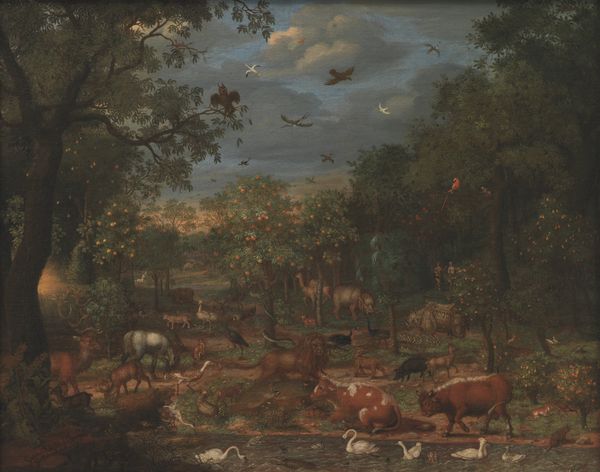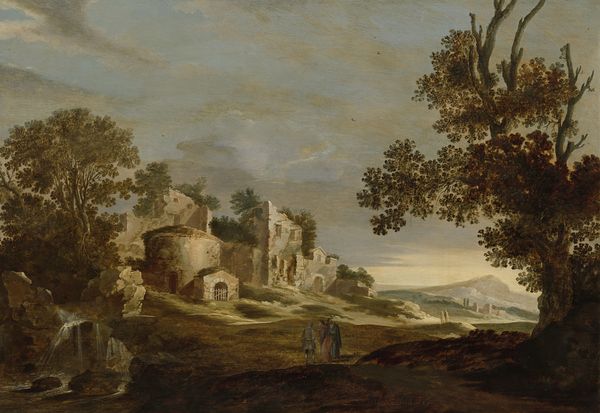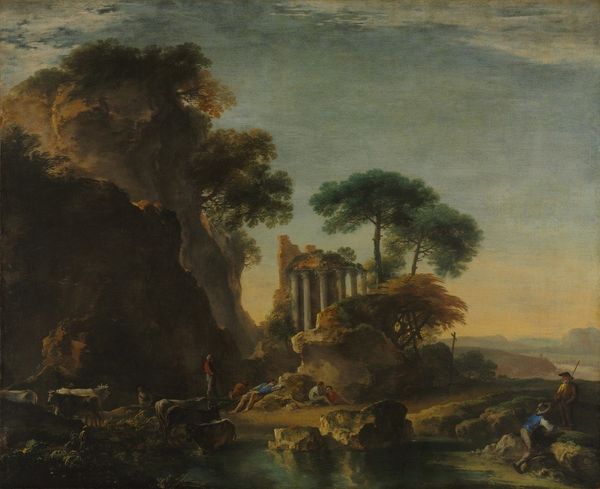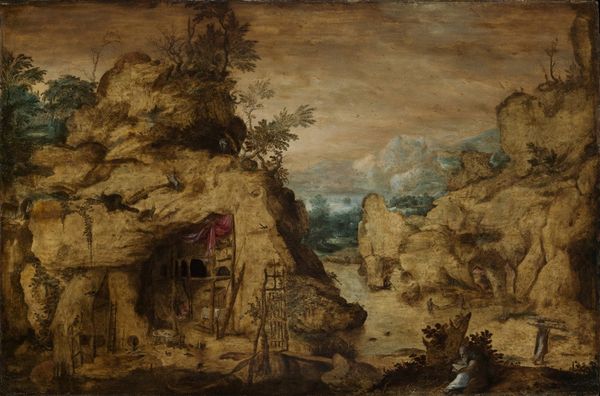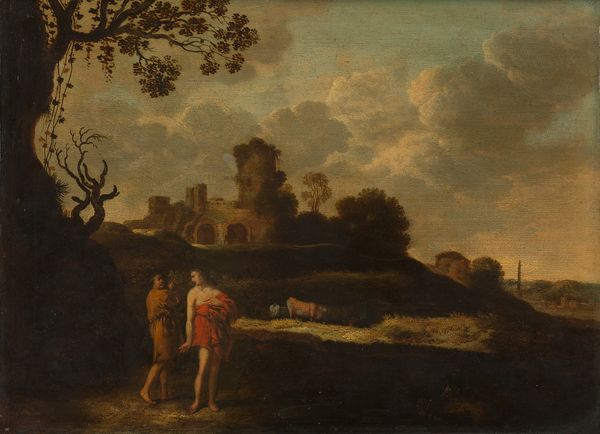
oil-paint
#
baroque
#
oil-paint
#
landscape
#
oil painting
#
genre-painting
#
realism
Dimensions: 26 3/4 × 47 7/16 in. (68 × 120.4 cm)
Copyright: Public Domain
Curator: Gaspard Dughet’s “Landscape with a Herdsman and Goats,” dating from around 1635, is a fantastic example of idealized landscape painting in the Baroque style. What strikes you about it? Editor: It evokes a feeling of solitude, almost melancholic. The muted colors and vast expanse give the sense of being very small in a large, indifferent world. But, of course, landscapes don't exist in a vacuum. Curator: Precisely. Notice how Dughet employs layering and atmospheric perspective to create depth. The careful arrangement of trees, rocks, and distant mountains guide the eye. One can't ignore his treatment of light, that serves to unify all these distinct visual elements into a comprehensive composition. Editor: Absolutely, and the pastoral subject contributes. Who does this herdsman serve, in this historical context? Are we meant to consider land enclosure, economic shifts of the period, or is it simply aestheticizing an existing power structure? Even his simple dress—what statement might it convey when consumed by wealthy patrons? Curator: The figure is definitely diminutive. Yet, he serves to subtly animate the scene, drawing our focus toward the center, mirroring, in many ways, how genre scenes worked with and against established historical painting. Editor: Yes, but the idealization, while appealing, also serves to distract. By focusing solely on formal elements, are we neglecting to discuss labor, social inequality, and even early forms of ecological devastation? Dughet provides aesthetic beauty, but, I'd argue, at the cost of lived experiences. Curator: But such formal choices contribute to its enduring appeal. It invites us to contemplate an aesthetic rendering of the natural world and allows us to access those painterly ideals. Editor: Perhaps. I see the work as less about timeless beauty and more as a snapshot, though filtered and crafted, of a specific set of relations to power, and also to land, and access to that land. Curator: It gives us plenty to reflect on, regarding structure and agency. Editor: Indeed, layers of artifice as well as complex historical currents.
Comments
No comments
Be the first to comment and join the conversation on the ultimate creative platform.
